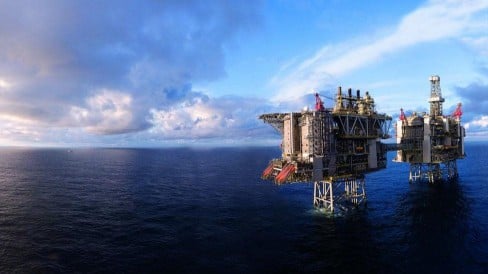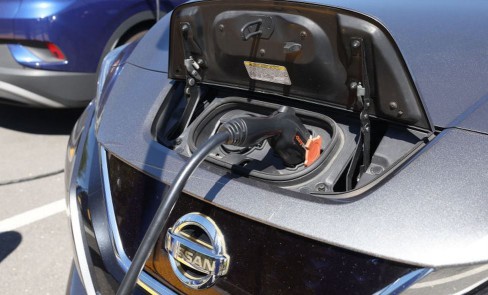
The controversial Rosebank offshore development off Shetland has been granted consent by regulators.
Located 80 miles of west of Shetland, Rosebank is the UK's largest untapped oil field and is estimated to contain 500 million barrels of oil.
Development and production approval has been given to owners Equinor and Ithaca Energy, following reassurances over environmental concerns.
The plan has faced widespread criticism due to its impact on climate change.
Last month 50 MPs and peers from all major parties raised concerns the oil field could produce 200m tonnes of carbon dioxide.
They wrote to then energy secretary Grant Shapps urging him to block Rosebank, adding that most of the cost of development would be shouldered by the taxpayer.
- Rosebank oil field should be blocked, says Lib Dem leader
- Plans lodged for Rosebank oil field near Shetland
- Should the Rosebank oilfield get the go ahead?
It comes after the government said it would issue hundreds of new licences for oil and gas exploration in the North Sea.
A spokesperson for the oil and gas regulator, the North Sea Transition Authority (NSTA), said: "We have approved the Rosebank Field Development Plan which allows the owners to proceed with their project."
They added it had been awarded "in accordance with our published guidance and taking net zero considerations into account throughout the project's lifecycle".
In response to the decision, Energy Security Secretary Claire Coutinho said: "We are investing in our world-leading renewable energy but, as the independent Climate Change Committee recognise, we will need oil and gas as part of that mix on the path to net zero and so it makes sense to use our own supplies from North Sea fields such as Rosebank.
"The jobs and billions of pounds this is worth to our economy will enable us to have greater energy independence, making us more secure against tyrants like (Vladimir) Putin.
"We will continue to back the UK's oil and gas industry to underpin our energy security, grow our economy and help us deliver the transition to cheaper, cleaner energy."
'Largest undeveloped field in the UK'
Ithaca Energy and Equinor have previously said if production started in 2026, then Rosebank could account for 8% of the UK's total oil production between then and 2030.
It has been predicted that Rosebank - located 80 miles of west of Shetland - could produce 69,000 barrels of oil a day at its peak, and about 44 million cubic feet of gas per day in its first 10 years.
Gilad Myerson, executive chairman of Ithaca Energy, said: "Rosebank stands as the largest undeveloped field in the UK, and with the receipt of development consent from the NSTA, we are now poised to embark on a journey that will not only provide critically important domestic energy but also ignite substantial economic impact."
Green MP Caroline Lucas described the decision as "the greatest act of environmental vandalism in my lifetime".
Image source, Getty Images
Russell Borthwick, chief executive of Aberdeen and Grampian Chamber of Commerce, said: "Rosebank will make an important contribution to UK and European energy security, create several hundred new jobs here in Scotland and result in over 拢6bn being spent within the UK supply chain which is anchored in Aberdeen and Aberdeenshire.
"Today's announcement is a welcome shot in arm for the UK energy sector which will give investors, operators and the wider supply chain confidence as they strive to provide the power we need here and now and transition towards a net zero future."
Labour has already said it would not grant licenses to explore new fields if it wins the next general election, although it would honour any licences that had already been granted.
The SNP has not said directly that is opposes Rosebank. Wellbeing economy secretary Neil Gray said recently that it was a decision for the UK government, but that he wants to see "stringent climate compatibility checkpoints".


